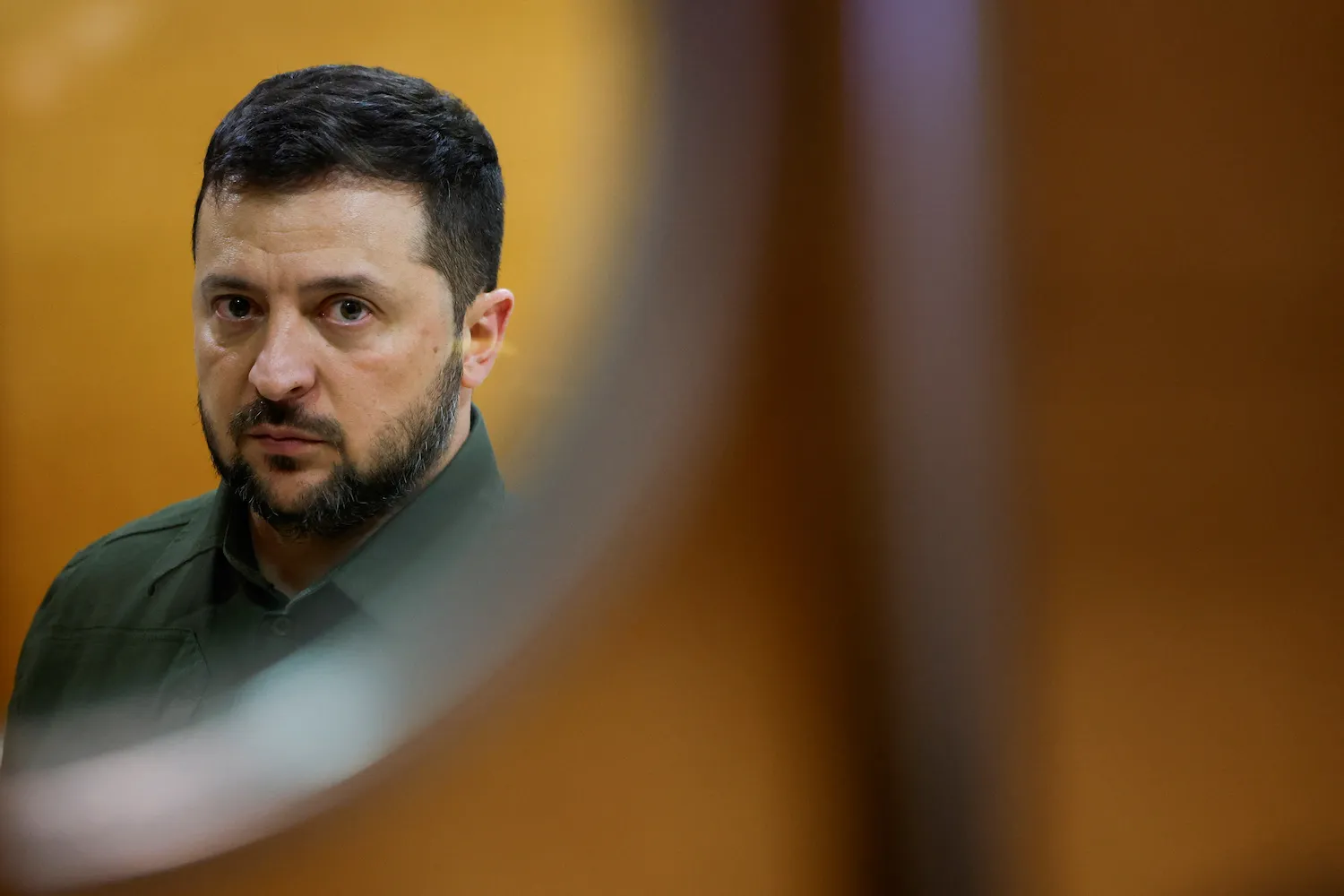The Ukraine Crisis: Assessing The Impact Of Trump's Foreign Policy On Russia

Table of Contents
Trump's Approach to Russia: A Departure from Traditional Policy?
Traditional US foreign policy towards Russia has historically involved a complex mix of engagement, deterrence, and alliances, emphasizing a multilateral approach through institutions like NATO. Trump's approach, however, marked a significant departure from this established norm. His administration prioritized personal diplomacy over established institutional processes, often appearing to prioritize his personal relationship with Vladimir Putin over broader strategic considerations. This shift had several key characteristics:
- Emphasis on Personal Diplomacy over Institutional Processes: Trump frequently prioritized bilateral meetings with Putin over multilateral discussions within international organizations. This bypassed traditional diplomatic channels and potentially weakened the effectiveness of collective responses to Russian aggression.
- Downplaying Russian Interference in US Elections: Despite intelligence community assessments confirming Russian interference in the 2016 US presidential election, Trump consistently downplayed the significance of these actions, hindering a unified national response.
- Hesitation in Providing Aid to Ukraine: The Trump administration exhibited hesitancy in providing crucial military and financial aid to Ukraine, a key element of countering Russian aggression. This reluctance was seen by many as a sign of appeasement.
- Criticism of NATO Alliances: Trump repeatedly criticized NATO allies, questioning their commitment to collective defense and suggesting a potential withdrawal of US support. This undermined the alliance's strength and potentially emboldened Russia.
For example, Trump's infamous press conference with Putin in Helsinki in 2018, where he sided with Putin over US intelligence agencies regarding Russian interference, sent a powerful message about his priorities and his perceived willingness to overlook Russian actions. This incident significantly damaged US credibility and trust among allies.
The Impact of Sanctions and Other Diplomatic Measures (or lack thereof) under Trump
The effectiveness of sanctions imposed during the Trump administration on Russia remains a subject of debate. While sanctions were implemented in response to certain actions, such as Russia's annexation of Crimea and interference in the US elections, their impact on Russia's behavior is questionable.
- Specific Examples of Sanctions (or lack thereof): While sanctions were imposed, they were often described as insufficient by critics who argued for more targeted and comprehensive measures. Moreover, Trump's administration reportedly hesitated to impose sanctions at times when they might have been most effective.
- Analysis of their Impact on Russia's Behavior: Studies on the effectiveness of sanctions on Russia under Trump are varied, with some suggesting a limited impact on altering Russia's geopolitical ambitions, while others point to a degree of economic pressure.
- Comparison to Sanctions Imposed by Subsequent Administrations: Subsequent administrations have imposed more robust and coordinated sanctions packages, suggesting that the Trump administration's approach was comparatively less aggressive.
The lack of consistent and robust application of sanctions, coupled with Trump's seemingly ambivalent attitude towards their implementation, is perceived by many as having weakened their deterrent effect. Further research is needed to fully assess the long-term consequences of this approach.
The Role of Energy Policy in Trump's Russia Relations
Trump's energy policies and their potential entanglement with Russia's energy sector raised significant concerns regarding potential conflicts of interest and their influence on US-Russia relations.
- Discussion of Potential Conflicts of Interest: Trump's business dealings and those of his associates raised questions about potential conflicts of interest related to Russian energy projects. These concerns fueled skepticism about the administration's impartiality in dealing with Russia's energy sector.
- Analysis of any Impact on Russian Energy Sector Influence: Some analysts argue that Trump's policies inadvertently strengthened Russia's influence in the global energy market, potentially creating leverage in geopolitical matters.
- Exploration of the Links between Energy Policy and Geopolitical Stability in the Region: The interplay between energy resources and geopolitical stability in the region is undeniable. Trump's energy policies, viewed through this lens, could be interpreted as unintentionally contributing to instability.
The potential links between energy policy and geopolitical strategies require careful scrutiny, especially in the context of US-Russia relations and the ongoing situation in Ukraine.
Public Opinion and Domestic Politics: The Influence on Trump's Russia Policy
Domestic political considerations significantly influenced Trump's approach to Russia.
- Impact of Public Opinion Polls on Trump's Stance: Public opinion on Russia and the desirability of closer ties with Russia varied significantly, and its impact on Trump's policy is open for debate.
- Influence of Political Allies and Advisors: Trump's closest advisors and allies played a significant role in shaping his Russia policy, sometimes advocating for approaches that prioritized personal relations over broader strategic considerations.
- Role of Partisan Divisions in Shaping the Policy Debate: Partisan divisions in the US significantly complicated the policy debate surrounding Russia and contributed to the inconsistent and often controversial nature of Trump's approach.
The interplay between domestic politics, public opinion, and foreign policy decision-making under Trump is a complex area that warrants further investigation.
Conclusion
This analysis reveals that Trump's foreign policy toward Russia significantly diverged from traditional US approaches. His emphasis on personal diplomacy, downplaying of Russian aggression, reluctance to provide substantial aid to Ukraine, and criticisms of NATO, coupled with arguably less effective sanctions, potentially contributed to the current crisis in Ukraine by weakening the West's collective response and inadvertently emboldening Russia. The potential conflicts of interest raised by energy policy and the influence of domestic political considerations further complicate the picture. Understanding the nuances of Trump's foreign policy on Russia is crucial for comprehending the current crisis in Ukraine. Continue your exploration of this critical topic to gain a deeper understanding of its complex implications.

Featured Posts
-
 Kakanwil Papua Ajak Masyarakat Dukung Persipura Jayapura
May 13, 2025
Kakanwil Papua Ajak Masyarakat Dukung Persipura Jayapura
May 13, 2025 -
 Scarlett Johanssons Alleged Stalker Arrested For Threatening Saturday Night Live
May 13, 2025
Scarlett Johanssons Alleged Stalker Arrested For Threatening Saturday Night Live
May 13, 2025 -
 Sabalenka Claims Madrid Open Title After Victory Over Gauff
May 13, 2025
Sabalenka Claims Madrid Open Title After Victory Over Gauff
May 13, 2025 -
 The Allure Of Nba Tankathon For Miami Heat Fans During The Off Season
May 13, 2025
The Allure Of Nba Tankathon For Miami Heat Fans During The Off Season
May 13, 2025 -
 Zber Dat Pre Novy Atlas Romskych Komunit Startuje V Aprili
May 13, 2025
Zber Dat Pre Novy Atlas Romskych Komunit Startuje V Aprili
May 13, 2025
